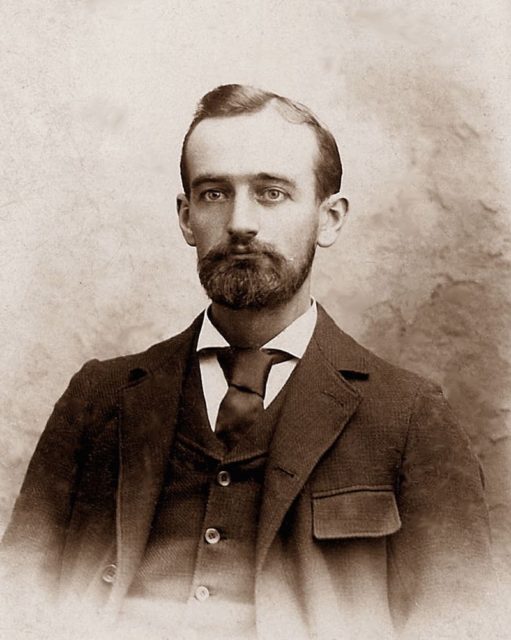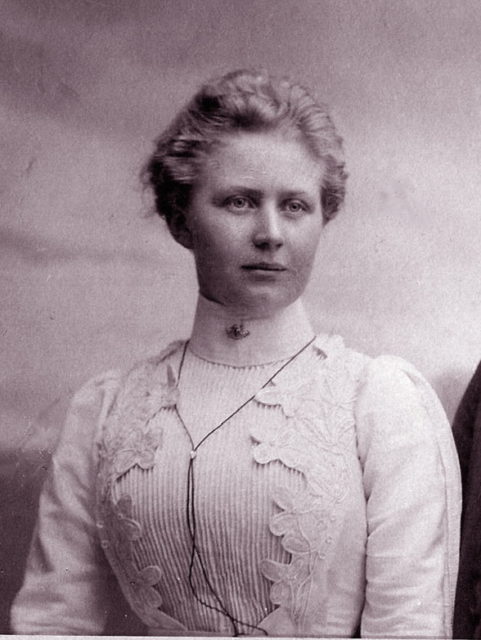The current Republican United States presidential candidate, Donald Trump, has deep roots in Germany. His grandfather, Friedrich Trump was born in the small southwest German town of Kallstadt in 1869. Even today, the town has just over 1,000 inhabitants.
At the age of 16, he emigrated to the United States to join his sister in New York. He immediately found work with a German barber, who hired him to help with his barbershop.
Trump stayed at the barbershop for six years, living in a tiny apartment and barely making a living.

When Trump heard of the gold rush frenzy in the upper Northwest, he decided to go and seek his fortune. He Americanized his first name to Fred and headed to Washington state.
At the age of 22, he became the owner of a restaurant in the red light district of Seattle, but before long found himself growing restless and sold out.
With hundreds of gold prospectors passing through Seattle on the way to Alaska, Trump decided that building hotels and opening restaurants was the key to success.
He and his friend, Ernest Levin started a business from a tent on Dead Horse Trail.
The Trail, also known as White Pass, was a well-traveled dirt trail that was so narrow and steep that many horses were unable to navigate it, causing over 3,000 to die by getting stuck in the mud, falling off cliffs or simply from exhaustion on the trail.
Trump and Levin took advantage of this opportunity to acquire free meat for their restaurant. Their success allowed them to move to a two-story building in Bennett Town in Canada. They christened their new hotel and eatery “The Arctic” and advertised themselves as the “Newest, Neatest, and Best Equipped” establishment north of Vancouver.
According to Gwenda Blair, author of a revealing book delving into the “narcissistic personality disorder of Donald”, The Trumps: Three Generations of Builders and a Presidential Candidate, Fred Trump was a hard living and hard drinking man and catered to men of the same caliber.
The restaurant, which operated twenty-four hours a day, offered such delicacies as caribou, goat, rabbit, squirrel, and moose meat. Fresh fruit was also on the menu. Raspberries, strawberries, blueberries, and cranberries were popular with the patrons after spending so much time riding the rugged trail.
“Customers depended on him for food, liquor, and women.” wrote Blair. Of course, the modern Trump family vehemently denies the claim that prostitutes were “on the menu”, but history suggests otherwise.
In 1898, grandfather Trump and 30 other prospectors invested in a schooner that was described by a newspaper in North Dakota as “one of the most complete outfits ever taken out of Seattle.”
The schooner, named Elsie, was a fifty-six-ton sailing vessel costing $3,500. The men also invested about $15,000 in supplies to outfit the ship for three years.

Elsie and the men left Seattle in 1898 looking for gold in Kotzebue, a town in northwest Alaska. Unfortunately, the schooner ran aground on Chirikof Island in the Gulf of Alaska due to an inexperienced captain. Elsie was stuck about three hundred yards from shore in three feet of water among the island rocks. The crew set up tents and were able to live off the ship’s provisions for about a month.
At this point, Trump feared the group would not survive much longer and began to pen a goodbye letter to the family in Germany. Before Trump completed his written farewells, the group was found by a passing Barkentine, a schooner with three masts.
The Elsie, as reported by the Alaska Dispatch News, was the only schooner to have ever run aground at the time.
Four years after the Elsie was abandoned, Trump sold his interest in the Artic to his partner and returned to Germany with his fortune to marry his childhood neighbor, Elizabeth Christ, and raise a family.
Trump’s mother did not approve of the match, deeming Elizabeth a lower class citizen.
The couple married nonetheless. German authorities, however, refused to allow Trump and his new bride to remain in Germany because of his draft dodging and refusal to pay taxes.
They also informed Trump that his German citizenship was no longer valid because he had left Germany for the United States to avoid military service.

Fred and Elizabeth moved to New York, and by 1904 Elizabeth had given birth to their first child, Elizabeth, followed by the son, Fred Jr. in 1905 – the future father of Donald, and son John born in 1907.
Grandfather Trump died in Queens, New York, during the 1918 Spanish flu pandemic at the age of 49, and is buried in Lutheran All Faiths Cemetery in Queens County.
At that time, his net worth was about $32,000, which translates into over $500,000 in modern currency.
Grandmother Trump and her fifteen-year-old son, Fred Jr. went into the real estate and building business, laying the foundation for the Empire now controlled by her presidential candidate grandson.
